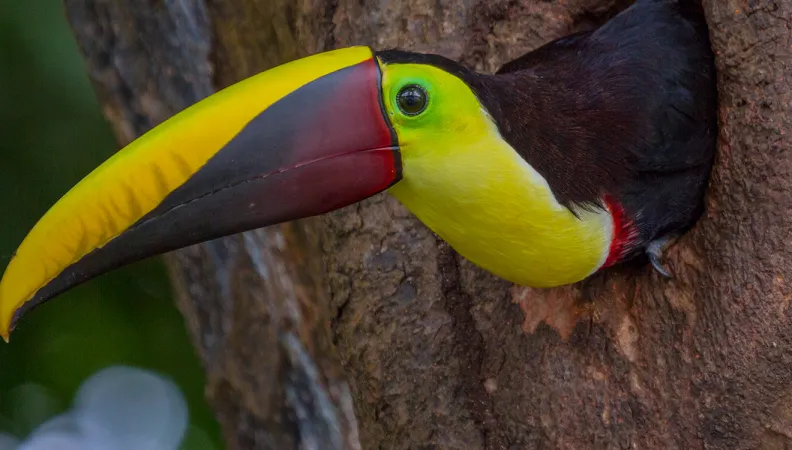Share the page
Costa Rica and France's Southeast: A Partnership for Biodiversity at the World Conservation Congress
Published on

The Diversity Partnership Project led by France's Southeast and Costa Rica, a pioneer country in biodiversity protection, was presented during the World Conservation Congress of the International Union for Conservation of Nature (IUCN), which took place in Marseille from 3 to 11 September 2021. This exceptional cooperation for environmental conservation has been made possible by AFD.
It is an atypical project involving cooperation between partners that appear different on paper. Yet they actually have a lot in common. On 5 September 2021, the partnership - or "Duo-Diversité program" was showcased during the World Conservation Congress of the International Union for Conservation of Nature (IUCN).
France's Southeast region, including Provence, the Alpes and the Côte d'Azur, has partnered with Costa Rica to exchange experiences on biodiversity. “These two territories have protected areas as well as an influx of tourists, and the (Southeast) region has the same number of inhabitants as Costa Rica,” says Florence Mouton, an AFD officer for the internationalization of territories and manager of Duo-Diversité.
This small Central American country values its flora and fauna: it alone has 6 % of the world’s biodiversity. In 1997, it was one of the first countries to develop a sustainable tourism label. Some 26% of the territory is currently classified as a protected area.
Further reading: 3 Questions on the IUCN World Conservation Congress
AFD is supporting this 2.2 million euros project with over 1 million euros of financing. For three years, the two territories will share their practices, build their institutional capacities for ecotourism and work on the conservation of biodiversity and the management of protected areas and water resources.
A project labelled FICOL
“Duo-Diversité establishes links between the terrestrial domain and maritime domain,” says Florence Mouton. “It involves looking at how we can reconcile receiving the public and conserving biodiversity.”
In France's Southeast, the Camargue and Sainte-Baume regional nature parks and Port-Cros and Porquerolles national parks will benefit, with support from the Regional Biodiversity and Environment Agency (ARBE). A “water” component aims to move forward on the issue of chemical and organic water pollution, in particular from agriculture, which is a major problem in Costa Rica. “The company, Canal de Provence provides its expertise on this issue through integrated water resources management on a watershed,” says the project officer.
The Duo-Diversité project has come about through the French Local Authorities Financing Facility, which is also called FICOL, an AFD tool that allows French regional and local authorities to support projects with foreign partners.
While this tool usually only concerns regional and local authorities, the Duo-Diversité project, which brings together a State and French regional authority, has come into being through a derogation from the Ministry for Europe and Foreign Affairs. “It’s an exceptional project,” says Florence Mouton. In 2020, AFD co-financed 14 projects in 14 different countries through the FICOL mechanism, for a total of €9 million. In 2022, its budget may be increased to €11 million.
Menu latéral
$(document).ready(function() {
$('#most_viewed_nodes_block').replaceWith($('#mi'));
});
IUCN Series
3 Questions on the IUCN World Conservation Congress Lessons learned from the IUCN World Conservation Congress The IUCN World Conservation Congress in 8 Points France and AFD, Key Partners of IUCN How Public Development Banks can Support Biodiversity One Planet Summit: Eight Months on, Progress on Biodiversity Main Menu
